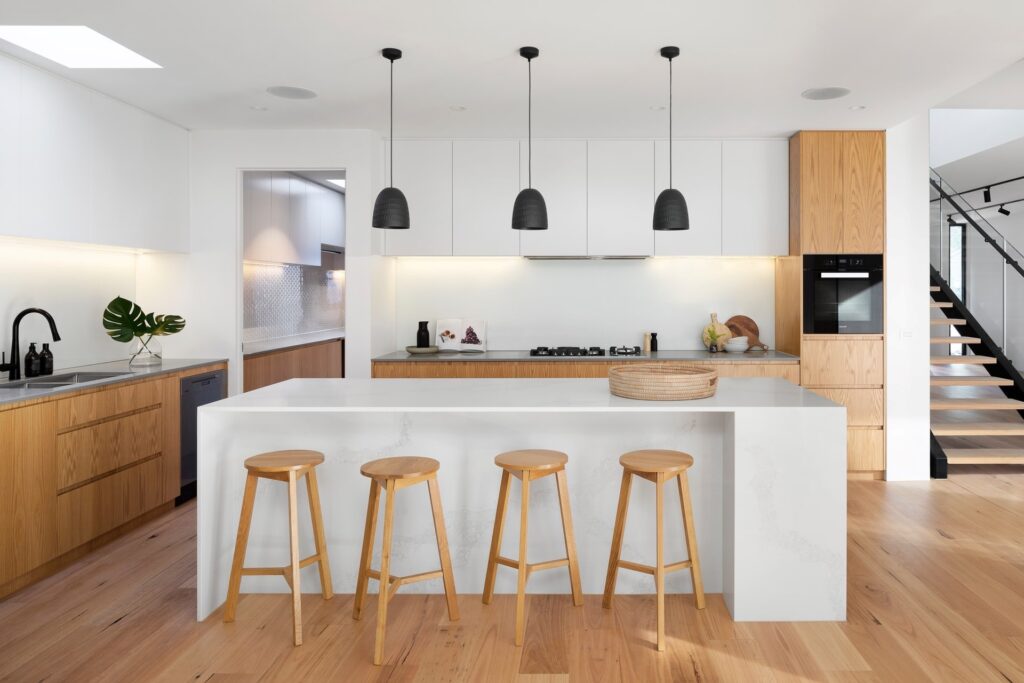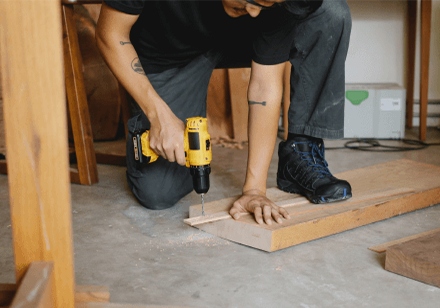Welcome to your ultimate guide on navigating the costs of bathroom renovations in Christchurch. Whether you’re looking to spruce up a dated design or planning a complete overhaul, understanding the financial aspects of renovating your bathroom is crucial. In this guide, we’ll dive into everything from the average costs associated with different types of renovations to the specific factors that can influence your budget in Christchurch. By the end, you’ll be equipped with the knowledge to make informed decisions that balance functionality, style, and affordability for your bathroom makeover. So, let’s start planning your dream bathroom with confidence.
On average, the cost of bathroom renovations in Christchurch ranges from $5,000 for minor updates to upwards of $20,000 for comprehensive overhauls that include high-end fixtures and finishes. Factors that significantly impact the cost include the bathroom’s size, the quality of materials selected, and the cost of labor. To ensure the most accurate estimate, homeowners are advised to seek multiple quotes from local contractors and factor in regional influences that might affect prices, such as material availability and economic conditions.
- Why Renovate Your Bathroom In Christchurch?
- Average Costs Of Bathroom Renovations In Christchurch
- Breakdown Of Renovation Costs
- Choosing The Right Contractors
- Legal And Regulatory Considerations
- DIY Vs. Professional Renovation
- Timeline For Bathroom Renovations
- Case Studies And Success Stories
- Planning Your Budget
- FAQs: About The Cost Of Bathroom Renovations Christchurch
- Conclusion
Why Renovate Your Bathroom In Christchurch?
Renovating a bathroom in Christchurch offers numerous advantages that extend beyond mere aesthetics. Whether you’re considering selling your home or simply enhancing your living space, a bathroom renovation can significantly impact your home’s value, functionality, and energy efficiency. Here’s a deeper look at why upgrading your bathroom is a worthwhile investment in Christchurch.
Increased Home Value
One of the primary reasons homeowners opt for bathroom renovations is the potential increase in property value. A modern, well-designed bathroom can be a major selling point. In Christchurch, where the real estate market can be competitive, a renovated bathroom can make your property stand out to prospective buyers. According to real estate experts, homeowners can expect a significant return on investment, particularly if the renovation includes high-quality fixtures and finishes.
Improved Functionality and Aesthetics
Over time, a bathroom can become dated and less functional. Renovating your bathroom allows you to customize this space to better meet your needs and preferences. Whether it’s adding more storage, updating the shower and bath, or simply creating a more visually appealing and cohesive design, a renovation can transform an ordinary bathroom into a personal retreat. For families in Christchurch, considerations such as double vanities, water-saving fixtures, and durable materials can enhance the bathroom’s functionality and durability.
Energy Efficiency and Sustainability
Energy efficiency is another compelling reason to renovate your bathroom. Modern fixtures such as low-flow toilets and showerheads, LED lighting, and energy-efficient heaters not only reduce your environmental footprint but also lower your utility bills. In Christchurch, where sustainability is increasingly valued, such upgrades can be particularly appealing. Additionally, using locally sourced materials can further reduce your renovation’s environmental impact while supporting local businesses.
Considerations Specific to Christchurch
When planning a bathroom renovation in Christchurch, several local considerations should be taken into account:
Local Climate: Christchurch’s climate can vary, with cold winters and warm summers. Incorporating features like underfloor heating or heated towel rails can add comfort and luxury during the colder months.
Material Availability: Access to certain materials might be limited or more costly due to logistical factors. Opting for locally available materials can reduce costs and ensure that your renovation supports local industries.
Seismic Activity: Given the seismic activity in the region, it’s crucial to choose materials and fixtures that are resilient and compliant with local building codes to ensure safety and durability.
By addressing these specific needs, homeowners in Christchurch can achieve a bathroom renovation that is not only beautiful and functional but also tailored to withstand local environmental and geological conditions.
In conclusion, renovating your bathroom in Christchurch is not just about updating the space; it’s an investment in your home’s future marketability and your current quality of life. With thoughtful planning, you can create a bathroom that offers increased value, enhanced functionality, and improved energy efficiency, all while considering the unique aspects of living in Christchurch.
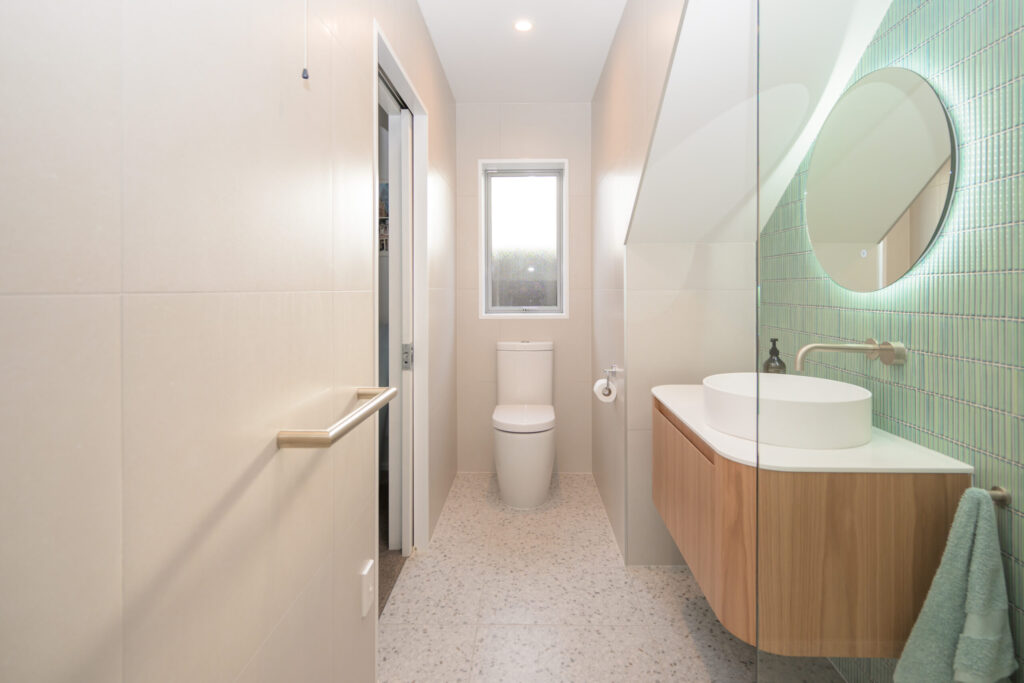
Average Costs Of Bathroom Renovations In Christchurch
When considering a bathroom renovation in Christchurch, it’s essential to understand the potential costs involved. These expenses can vary widely depending on the scale of your project, the materials you choose, and the size of your bathroom. Whether you’re planning minor updates or a major overhaul, having a clear budget in mind will help you navigate the process smoothly.
Cost Range for Different Scales of Renovation
Minor Updates: For smaller updates, such as replacing fixtures, repainting walls, or updating a vanity, costs can range from NZD $2,000 to $5,000. These renovations don’t typically require extensive plumbing or electrical changes, which helps keep the costs down.
Major Overhauls: A full-scale bathroom renovation that includes altering the layout, upgrading the plumbing and electrical systems, and installing high-end finishes and fixtures can cost anywhere from NZD $10,000 to over $30,000. The wide range in cost reflects the level of customization and luxury materials that you might choose.
Factors Influencing Renovation Costs
Size of the Bathroom: Larger bathrooms will generally cost more to renovate due to the increased amount of materials and labor required. Conversely, smaller spaces might cost less, though the per-square-meter cost could be higher if you opt for luxury finishes.
Choice of Materials: The type of materials you select has a significant impact on the cost. Standard materials such as laminate countertops and basic ceramic tiles are more budget-friendly, while high-end options like natural stone or high-tech fixtures can increase the cost substantially.
Labor Costs: Labor typically accounts for a considerable portion of the renovation expenses. The complexity of your project can affect how much you pay for skilled tradespeople. In Christchurch, as in other cities, experienced contractors may command higher fees but can provide quality workmanship that is worth the extra investment.
Regional Economic Factors in Christchurch
Christchurch’s local economy can also influence bathroom renovation costs. Post-earthquake rebuilds and repairs have had a long-term impact on construction costs and labor availability in the region. Demand for skilled labor can drive up prices, especially during peak construction periods. Additionally, the cost of materials can fluctuate due to local demand and supply chain factors specific to the area.
In conclusion, renovating a bathroom in Christchurch can be a worthwhile investment, adding value to your home and enhancing your daily life. By understanding the factors that affect renovation costs, you can set a realistic budget that aligns with your vision for the space. Whether you’re making minor updates or planning a major transformation, consider these elements to ensure your project goes as smoothly as possible, without unwanted financial surprises.
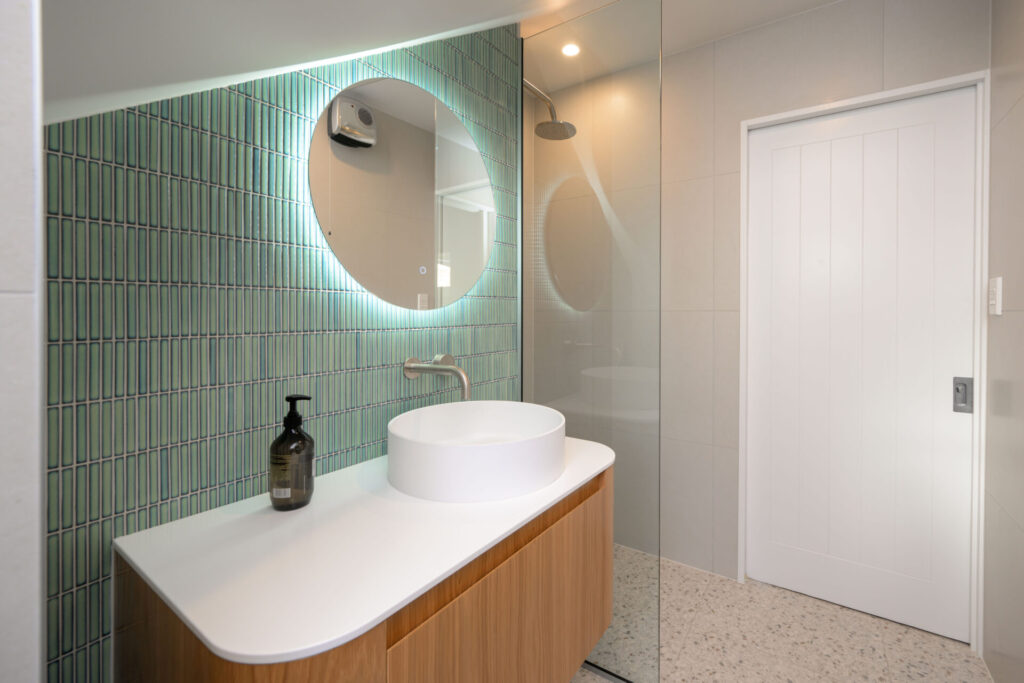
Breakdown Of Renovation Costs
When embarking on a renovation project, understanding the costs involved is crucial for staying within budget and ensuring that the result aligns with your vision. This section offers a comprehensive breakdown of renovation costs, focusing on essential elements such as labor, materials, fixtures, and additional features. We also delve into cost-effective strategies and when it’s advisable to invest more heavily.
Detailed Cost Breakdown
Labor: Labor costs often account for a significant portion of the total renovation expenses. These costs can vary depending on the project’s complexity, the professionals’ skill level needed, and the project’s duration. It’s important to get multiple quotes and check references to find reliable contractors who offer fair prices.
Materials: The choice of materials can dramatically affect both the cost and the appearance of your renovation. Materials range from basic to luxury, with costs varying accordingly. Common materials include wood, stone, metal, and glass, each with different price points and durability.
Fixtures: Fixtures include items like sinks, toilets, cabinets, and lighting. The quality and design of fixtures can significantly influence the overall aesthetics and functionality of your renovation. Prices for fixtures can vary widely, so it’s important to balance quality and budget.
Additional Features: Features such as tiles, showers, and tubs can enhance the comfort and value of your home but can also increase the cost of your renovation. Choosing the right features involves considering both the practicality and the style they bring to your space.
Cost-Saving Materials
While renovating, you can save money without compromising quality by choosing cost-effective materials. For example, laminate countertops instead of granite or quartz can offer a similar aesthetic at a much lower price. Vinyl or laminate flooring can also be excellent alternatives to more expensive wood or tile options. These materials not only save on upfront costs but are also durable and easier to maintain.
Splurging Where It Counts
There are areas in a renovation where splurging might be worth the extra investment. For instance, investing in a high-quality, energy-efficient HVAC system can reduce long-term energy costs. Similarly, spending more on high-quality windows can improve insulation, enhancing your home’s energy efficiency and comfort.
Local Sourcing Tips in Christchurch
For those renovating in Christchurch, sourcing materials locally can lead to savings in both time and transportation costs. Local suppliers often have better knowledge of what works best in the local climate and can provide valuable advice and competitive pricing. Establishing a good relationship with local suppliers can also lead to discounts and insights on the latest trends and materials.
A careful breakdown of renovation costs including labor, materials, fixtures, and additional features can help homeowners in Christchurch make informed decisions that align with their budget and design preferences. By understanding where to save and where to splurge, and by sourcing materials locally, you can ensure that your renovation project is both cost-effective and successful.
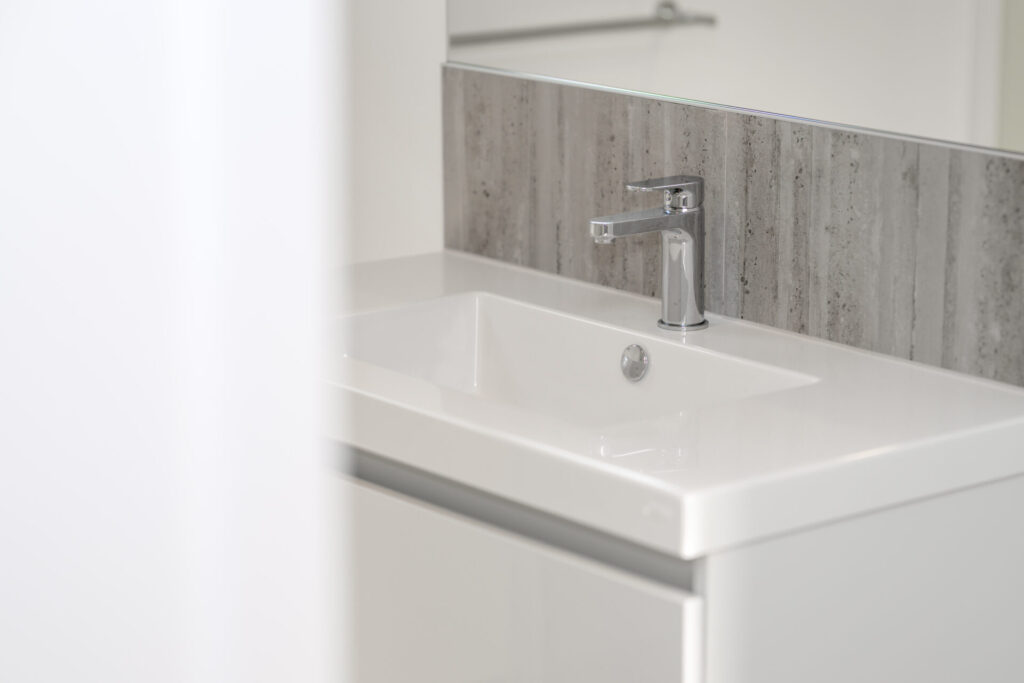
Choosing The Right Contractors
Selecting the right contractors is pivotal when embarking on construction projects, renovations, or any home improvement tasks. This guide will delve into how to find and choose the most reliable contractors in Christchurch, emphasizing the importance of gathering multiple quotes and evaluating contractor offers comprehensively.
How to Find and Choose Reliable Contractors in Christchurch
Finding a trustworthy contractor in Christchurch involves more than a simple online search; it requires a methodical approach. Start by seeking recommendations from friends, family, or neighbors who have recently undertaken similar projects. Personal referrals can provide insights not just into a contractor’s ability to deliver quality work, but also their reliability and adherence to timelines.
Online platforms and local business directories offer another avenue for finding contractors. These sources typically include customer reviews and ratings, which can be invaluable. Pay attention to comments regarding contractors’ professionalism, communication, and problem-solving skills.
Trade associations are also a good resource. Membership in these organizations often indicates a contractor’s commitment to industry standards and ongoing professional development.
The Importance of Getting Multiple Quotes
Obtaining multiple quotes is crucial for several reasons. It allows you to compare prices and get a sense of what the market rate is for the work you need done. This doesn’t mean you should automatically choose the lowest bidder. Instead, use the quotes to understand what each contractor offers for their price. A higher quote might include better materials or more comprehensive services, which can be cost-effective in the long run.
Moreover, interacting with several contractors during the quote process can give you a feel for whom you would prefer to work with based on their professionalism and the clarity of their communication.
What to Look for in a Contractor’s Offer
When evaluating a contractor’s offer, ensure that they have all the necessary licenses and insurance required in Christchurch. Licensing not only confirms the contractor’s legitimacy but also their adherence to local building codes and regulations.
References are equally important. A reliable contractor should be willing and able to provide a list of past clients. Don’t just collect these references contact them. Ask about their overall satisfaction with the project, and if possible, visit the finished work to see it for yourself.
Lastly, review the contractor’s portfolio of past projects. A portfolio can provide a visual confirmation of the contractor’s skills and the quality of work you can expect on your project. It’s also a chance to see if they have experience with projects similar to yours.
In closing, choosing the right contractor in Christchurch is a crucial step in ensuring the success of your project. By following these guidelines seeking recommendations, obtaining multiple quotes, and scrutinizing contractor offers you’ll be well-equipped to make an informed decision. Remember, the right contractor will not only deliver excellent results but will also provide a smooth and stress-free construction experience.
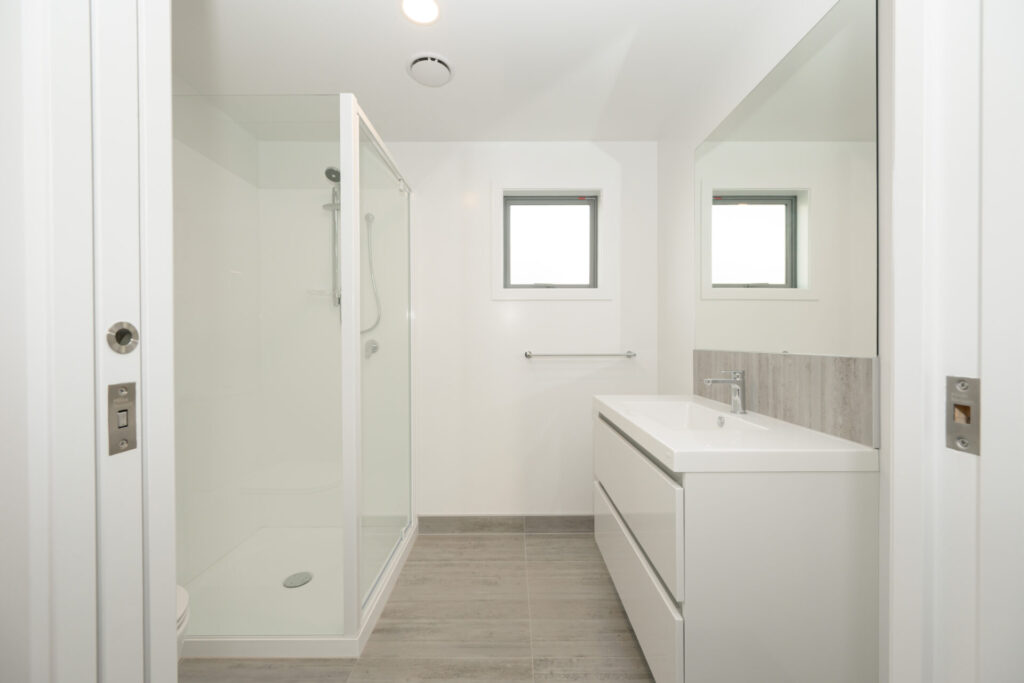
Legal And Regulatory Considerations
When planning to build or renovate in Christchurch, it’s crucial to have a clear understanding of the local legal and regulatory landscape. This section aims to outline the specific permits and regulations homeowners in Christchurch need to be aware of, as well as the implications of not adhering to these local building codes.
Permits and Regulations Specific to Christchurch
Resource Consents: Before starting any significant construction or renovation project in Christchurch, you may need to apply for resource consent. This is particularly important if your project will impact the natural environment, such as land use or water usage. The Christchurch City Council provides guidance and application forms for these consents.
Building Consents: Apart from resource consents, building consents are mandatory for most construction activities. These consents ensure that your building plans comply with the New Zealand Building Code, focusing on safety and sustainability. You can apply for building consent through the Christchurch City Council’s website, which offers an online application system.
Heritage Restrictions: Christchurch is home to many heritage buildings and sites. If your property is a heritage-listed site or in a heritage area, additional restrictions may apply. These can include limitations on alterations or requirements for using specific materials or construction methods to preserve the historical integrity of the area.
Zoning Laws: Understanding the zoning laws of your specific area in Christchurch is also critical. Zoning laws dictate what types of buildings and activities are allowed in different parts of the city. This can affect everything from the height of buildings to the type of businesses that can operate in a particular area.
Implications of Not Adhering to Local Building Codes
Ignoring local building codes and regulations in Christchurch can have serious consequences. Below are some potential implications:
Penalties and Fines: Failing to obtain the necessary consent or adhering to the building codes can result in substantial fines. These are enforced by the local council to ensure compliance and safety standards are met.
Legal Actions: In some cases, non-compliance can lead to legal action. This could involve court proceedings, especially if the non-compliance leads to safety issues or affects neighboring properties.
Increased Costs: Rectifying non-compliant work can be significantly more expensive than complying in the first instance. This often involves redoing work to meet the required standards, which can be both time-consuming and costly.
Impact on Insurance: Non-compliance with building codes can also impact your ability to obtain insurance or claim insurance for your property. Insurers typically require compliance with local laws as a precondition for coverage.
Sale and Valuation Impacts: Compliance issues can affect the resale value of your property. Potential buyers are likely to be deterred by the prospect of inheriting unresolved compliance issues, which could decrease the market value of your home.
In conclusion, understanding and adhering to the specific legal and regulatory requirements in Christchurch is essential for any construction or renovation project. It ensures the safety, legality, and sustainability of your development while also enhancing the overall value and insurability of your property. Homeowners are encouraged to consult with the Christchurch City Council or a legal professional specializing in local property law to navigate these requirements effectively.
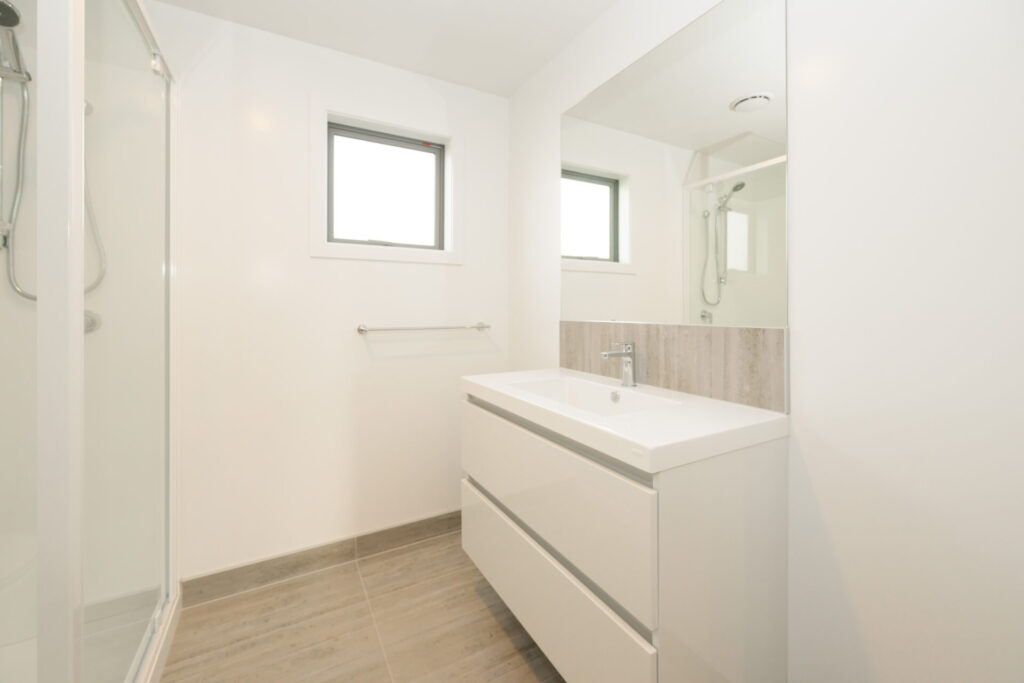
DIY Vs. Professional Renovation
When considering a bathroom renovation, one of the primary decisions you’ll face is whether to take the DIY route or hire professional contractors. Both options come with their own sets of advantages and disadvantages. Understanding these can help you make an informed decision that suits your needs, budget, and skill level. Let’s dive into the pros and cons of DIY versus professional bathroom renovations and explore which aspects of the renovation process are realistically manageable by a typical homeowner.
Pros and Cons of DIY Bathroom Renovations
Pros
Cost Savings: The most apparent advantage of doing it yourself is the potential cost savings. Professional labor can constitute a significant portion of renovation expenses. By handling the work yourself, you can save money that might otherwise go to paying contractors.
Personal Satisfaction: Completing a renovation on your own can offer a sense of accomplishment. There’s personal pride in seeing a project through from start to finish using your skills and creativity.
Flexibility: DIY projects allow you to work at your own pace and on your schedule. You can spread out the renovation over time, which can be particularly beneficial if you need to budget carefully.
Cons
Time Commitment: DIY renovations often take longer than expected, especially if you’re learning as you go. What might take a professional a few days could take much longer without the same level of experience.
Potential for Mistakes: Without the expertise of professionals, there’s a higher risk of errors that could affect the project’s outcome or even require costly fixes.
Stress and Complexity: Managing a renovation project can be stressful, particularly if you’re juggling it with other responsibilities like work and family.
Pros and Cons of Hiring Professional Renovators
Pros
Expertise and Efficiency: Professionals bring experience and skills that ensure the work is done correctly and efficiently. They can foresee potential issues and address them before they become significant problems.
Speed: A professional team can complete the job much faster, which is crucial if you need the bathroom ready by a specific date.
Warranty and Compliance: Professional work often comes with warranties, and contractors are responsible for ensuring that the renovation meets all local building codes and regulations.
Cons
Higher Costs: The major downside of hiring professionals is the cost. The expense is considerably higher than DIY, primarily due to labor costs.
Less Control: While you can specify what you want, you might find that you have less control over the day-to-day execution of your renovation plan.
Scheduling Conflicts: You’ll need to coordinate with the contractors’ schedules, which might not always align with your preferred timeline.
Realistic DIY Bathroom Renovation Projects
For the typical homeowner, some bathroom renovation tasks are more realistic to DIY than others. Here are a few suitable projects:
Painting: A fresh coat of paint can transform a space without the need for professional skills.
Replacing Fixtures: Swapping out old faucets, showerheads, or cabinet hardware are manageable task for most homeowners.
Updating Accessories: Changing things like towel racks, mirrors, and storage units can be done easily and can significantly affect the room’s look.
However, more complex tasks such as electrical wiring, plumbing, and structural changes typically require professional knowledge and tools. These tasks not only demand a higher skill level but are also subject to strict building codes.
Deciding between DIY and hiring professionals for a bathroom renovation depends largely on your available time, budget, and skill level. If you have the time and are eager to learn, small to moderate DIY projects might be suitable. However, for extensive renovations or projects that require technical expertise, hiring professionals is advisable to ensure safety, efficiency, and compliance with building regulations. Choose wisely to ensure that your bathroom renovation meets your expectations and adds value to your home.

Timeline For Bathroom Renovations
When embarking on a bathroom renovation, understanding the timeline and planning effectively can help manage expectations and ensure a smoother process. The duration of a bathroom renovation can vary significantly depending on whether you are undertaking a minor refresh or a major overhaul. Here, we explore typical timelines for both scenarios, along with insights on how to plan your renovation timeline and factors that might cause delays.
Typical Timelines for Minor vs. Major Renovations
Minor Renovations
Minor bathroom renovations might include replacing fixtures, painting walls, updating lighting, and installing new tiles. These upgrades generally do not require drastic changes to the layout or plumbing, which helps keep the timeline shorter. Typically, a minor bathroom renovation can be completed within 2 to 3 weeks. This is under the assumption that materials are readily available and decisions are made promptly.
Major Renovations
Major renovations involve more extensive changes, which may include altering the layout, moving plumbing, or expanding the space. These projects often require professional design, demolition, construction, and possibly custom elements. As a result, a major renovation can take anywhere from 4 to 12 weeks, sometimes longer, depending on the complexity and scale of the project.
Planning Your Renovation Timeline
To plan an effective renovation timeline, start by outlining a clear goal and scope for your project. Consider these steps:
1. Define Your Vision: Have a clear idea of what you want to achieve. Gather inspiration from design sites, magazines, or consultation with a designer.
2. Hire Professionals: For substantial changes, it’s advisable to hire experienced contractors or a renovation team who can foresee potential challenges and handle them efficiently.
3. Procure Materials: Delays in material delivery can significantly extend your timeline. Choose and order materials early in the process, considering lead times.
4. Secure Permits: If your renovation involves structural changes, plumbing, or electrical work, obtaining the necessary permits can add to your timeline. Start this process early to avoid delays.
5. Schedule Work Phases: Coordinate the sequencing of tasks. Ensure that each professional involved knows their start dates and deadlines.
6. Buffer Time: Always include extra time in your schedule for unexpected issues. A buffer of a week or two can be crucial.
Factors That Might Cause Delays
Several factors can derail your planned timeline:
Supply Chain Issues: Delays in the delivery of materials like custom cabinetry or imported tiles can halt progress.
Discovery of Issues: Once demolition begins, hidden problems such as water damage or outdated wiring may be uncovered, necessitating additional work.
Permit Delays: Waiting for permits can be unpredictable. Local government backlogs can extend wait times longer than expected.
Change Orders: Changes in design or materials during the renovation can lead to delays and additional coordination.
Contractor Scheduling: Your project timeline can also be affected by the availability of your contractors. High-demand seasons can lead to scheduling challenges.
Understanding these timelines and potential delays will help you manage the renovation process more effectively, reducing stress and ensuring that your new bathroom meets your expectations. By carefully planning and preparing for unforeseen circumstances, you can navigate the complexities of bathroom renovations with confidence.

Case Studies And Success Stories
When considering a bathroom renovation, real-life examples can provide invaluable insights and inspiration. In Christchurch, many homeowners have transformed their bathrooms into modern, functional spaces. This section explores several case studies and success stories of bathroom renovations in Christchurch, complete with before and after photos, budget details, and firsthand accounts from the homeowners.
Case Study 1: Modern Makeover on a Mid-Range Budget
Before and After: The first case study features a 1970s bathroom transformed into a sleek, contemporary space. The before photos showcase dated fixtures and drab tiling, while the after photos reveal crisp white ceramics, a walk-in shower, and a modern vanity.
Budget: This renovation was achieved on a mid-range budget of approximately $15,000 NZD. Strategic choices such as retaining the original layout while upgrading fixtures and surfaces helped manage costs effectively.
Homeowner Interview: The owners, a young couple, shared that their key objective was to create a more functional and aesthetically pleasing space. “We focused on materials that offered both style and durability, which was important for our growing family,” they explained. Their advice to others is to prioritize essentials like good plumbing and waterproofing before aesthetics.
Case Study 2: Luxury Upgrade with High-End Finishes
Before and After: The second case study delves into a luxury renovation where no expense was spared. Before the renovation, the bathroom felt cramped and outdated. The transformation included expanding the space, installing a freestanding tub, and incorporating high-end marble tiling.
Budget: This project had a more flexible budget, totaling around $30,000 NZD. The investment focused on high-quality materials and custom fittings, including smart mirrors and underfloor heating.
Homeowner Interview: The homeowner, a professional interior designer, aimed for a sanctuary-like feel. “My vision was to have a spa-like retreat from the hectic day-to-day life,” they said. They recommend that those looking to invest in a similar renovation should not underestimate the planning phase, which can significantly enhance the project’s outcome.
Case Study 3: Eco-Friendly Refresh on a Budget
Before and After: This case study highlights an eco-friendly approach to bathroom renovation. Initially, the bathroom featured inefficient fixtures and synthetic materials. The renovation introduced low-flow water fixtures, recycled glass tiles, and a dual-flush toilet.
Budget: Completed with a modest budget of $10,000 NZD, this renovation shows how sustainable choices can align with financial limitations without compromising on style or functionality.
Homeowner Interview: The homeowners were passionate about sustainability. “We wanted our bathroom to reflect our environmental values,” they noted, advising others to consider the long-term savings in utility bills when choosing eco-friendly fixtures.
These case studies from Christchurch illustrate the diverse ways homeowners can approach bathroom renovations, tailored to different budgets and preferences. Whether seeking a luxury retreat, a modern upgrade, or an eco-friendly overhaul, the key to a successful renovation lies in thorough planning and clear priorities. Each story not only provides practical insights but also inspires possibilities that go beyond the conventional, making any bathroom renovation a potentially transformative project.
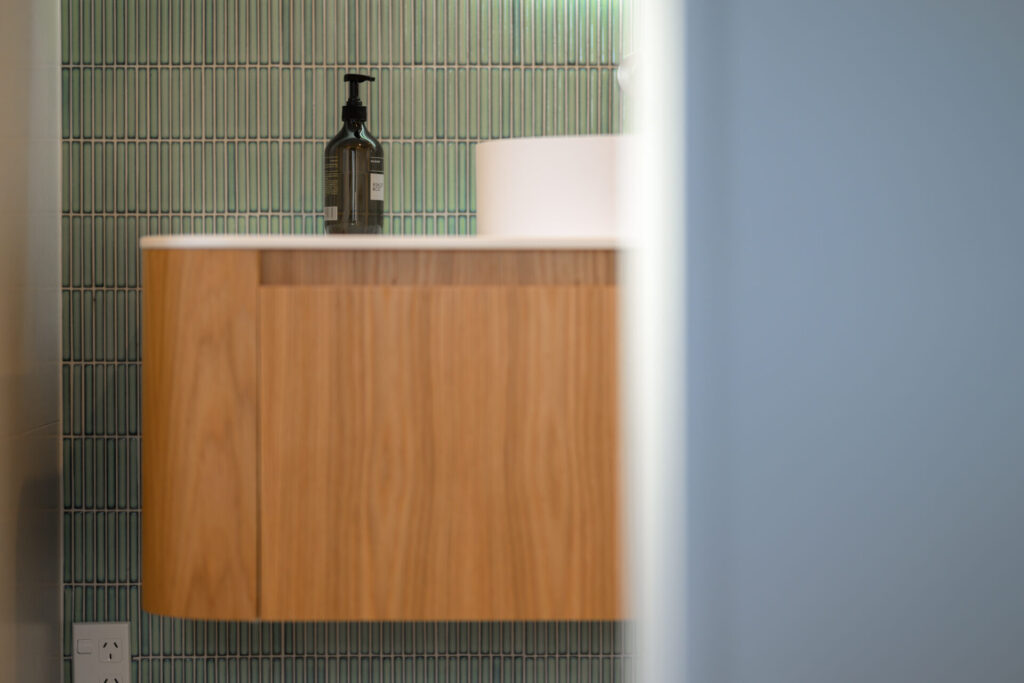
Planning Your Budget
Creating a budget can seem daunting, especially if you’re planning large projects or managing significant financial commitments. Whether you’re gearing up for a home renovation in Christchurch or setting financial goals for the year, having a clear and realistic budget is crucial. This detailed guide provides practical advice on setting a realistic budget, explores various financing options available in Christchurch, and underscores the importance of maintaining a contingency fund.
Setting a Realistic Budget
The first step in planning your budget is to set realistic and achievable goals. Begin by assessing your current financial situation this includes all sources of income and all your expenditures. Here’s how to approach this:
Track Your Spending: Keep a detailed record of where your money goes each month, including all bills, discretionary spending, and incidentals.
Categorize Your Expenses: Divide your expenses into fixed (e.g., rent, utilities, car payments) and variable (e.g., groceries, entertainment) categories. This helps in understanding where you can adjust if needed.
Set Priorities: Identify what’s most important to you. Prioritizing expenses will guide your spending patterns and help you allocate funds efficiently.
Use Budgeting Tools: Consider using a spreadsheet or a budgeting app to keep everything organized and accessible. These tools can also help forecast future spending and savings.
Financing Options in Christchurch
When it comes to funding larger expenses or projects in Christchurch, there are several financing options you might consider:
Personal Loans: Banks and financial institutions in Christchurch offer personal loans that can be used for a variety of purposes. These are generally unsecured and the interest rates may vary based on your credit score.
Home Equity Loans: If you own a home, a home equity loan is a great way to finance big projects. This type of loan uses the equity of your home as collateral.
Credit Facilities: Overdrafts or lines of credit can provide flexibility by allowing you to borrow money up to a certain limit when you need it.
Researching and comparing these options will help you find the best rates and terms that suit your financial situation. Be sure to consider the total cost of the loan, including interest rates and any fees involved.
Importance of a Contingency Fund
A contingency fund is an essential part of any financial plan. Life is unpredictable, and unexpected expenses can arise at any time. Here’s why a contingency fund is important:
Emergency Preparedness: Whether it’s a sudden medical bill, urgent home repairs, or unexpected travel needs, having a contingency fund ensures that you’re prepared for financial emergencies without disrupting your regular budget.
Financial Security: A contingency fund contributes to your overall financial security by providing a buffer that keeps you from needing to take on additional debt.
Peace of Mind: Knowing you have funds set aside for emergencies can reduce stress and provide peace of mind.
Experts generally recommend setting aside three to six months’ worth of living expenses in a contingency fund. Start small if necessary and build up gradually.
In conclusion, planning your budget with realistic goals, understanding the financing options available in Christchurch, and establishing a contingency fund are all vital steps in managing your financial health effectively. By taking a methodical approach to your finances, you can achieve your financial objectives and prepare for the unexpected with confidence.
Incorporating these strategies into your financial planning not only helps in maintaining a healthy economic lifestyle but also prepares you for a prosperous and secure financial future.

FAQs: About The Cost Of Bathroom Renovations Christchurch
Conclusion
Understanding the costs associated with bathroom renovations is crucial for effective budgeting and decision-making. When planning your renovation, it’s important to strike a balance between cost, quality, and functionality to ensure long-term satisfaction and durability. High-quality materials and skilled labor, while more costly upfront, can provide greater durability and a polished finish, reducing future maintenance needs. Functionality is also key; your bathroom should meet the specific needs of your household, whether that involves space-saving solutions or luxurious enhancements like heated floors. To make informed choices, consider consulting with local experts and visiting showrooms. These resources can offer tailored advice and firsthand experience with materials and designs, helping you make decisions that enhance both the value and enjoyment of your home.

